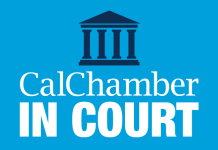 The U.S. Securities and Exchange Commission (SEC) has released its long-awaited final rule on reporting requirements for certain climate risks and greenhouse gas emissions for publicly traded companies.
The U.S. Securities and Exchange Commission (SEC) has released its long-awaited final rule on reporting requirements for certain climate risks and greenhouse gas emissions for publicly traded companies.
The final rule released on March 6 was significantly different from what the SEC initially contemplated when the rule was first introduced in 2022. The SEC’s rule excludes reporting requirements for emissions stemming from the supply chain (Scope 3) and linking Scope 1 (direct) and Scope 2 (indirect) emissions to information that publicly traded companies deem material.
California Requirements
Similarly, the SEC rule is a significant departure from disclosure requirements in California.
SB 253 (Wiener; D-San Francisco) and SB 261 (Stern; D-Canoga Park), both passed and signed in 2023, will impose reporting requirements related to Scope 3 emissions and climate-related risks for companies that do business in California, using specific revenue thresholds ($500 million for SB 261 and $1 billion for SB 253).
Due to budgetary constraints, however, there is no funding to implement the bills. Governor Gavin Newsom’s proposed budget issued on January 10, 2024 did not include funding needed for implementing either measure.
Moreover, signing statements for both SB 253 and SB 261 make clear that the Newsom administration has concerns with the bills’ financial impacts and has directed the California Air Resources Board (CARB) to offer recommendations on streamlining these programs.
While California assesses what the final product will look like for both measures, it will be important to keep in mind that emissions disclosures and climate-related risk reporting here in California will be significantly different than anywhere else in the United States.
A measure similar to SB 253 was introduced in Washington state (SB 6092) and failed to pass. Here in California, companies will be required to report on all 15 categories of Scope 3 emissions factors, regardless of whether that information is material or not. Clearly, this is a stark contrast to what was ultimately proposed by the SEC.
California’s historic budget deficit has been challenging, but perhaps it has created an opportunity for CARB to refine its recommendations based on what others are doing — or not doing. The State now has a better understanding of what will be required at the federal level through the SEC’s final rule, and outcomes from efforts in other states, such as Washington.
Ultimately, some realignment will be necessary to meet the guidance Governor Newsom included in the SB 253 signing statement and streamline the programs based on financial impacts to the business community.
Pending Litigation
The California Chamber of Commerce and a coalition of business groups are challenging SB 253 and SB 261 in a lawsuit in the U.S. District Court for the Central District of California.
The lawsuit, filed on January 30, asserts that both SB 253 and SB 261 unconstitutionally compel speech in violation of the First Amendment and conflict with existing federal law and the Constitution’s delegation to Congress of the power to regulate interstate commerce.


